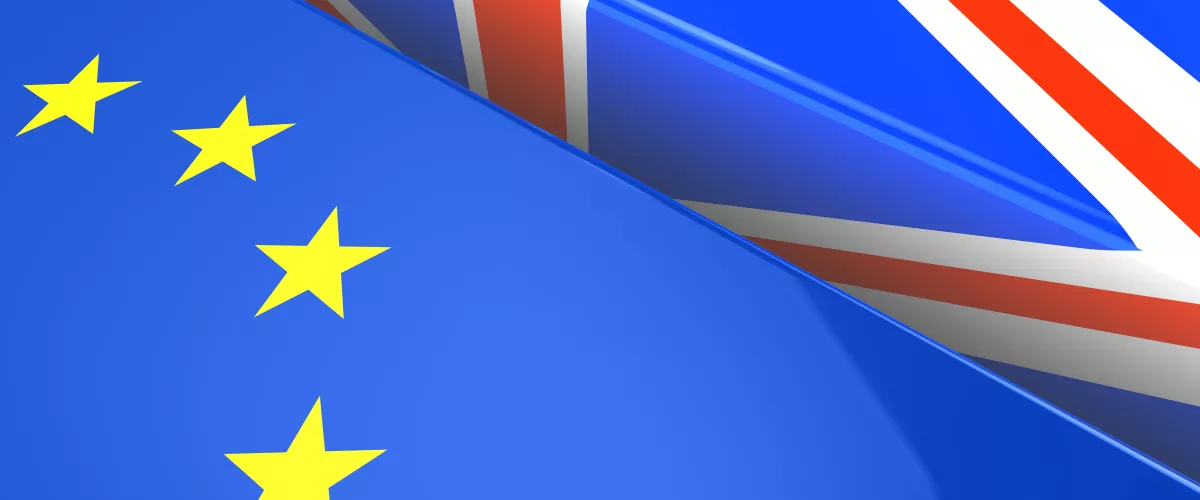UK businesses preparing for post-BREXIT trade

As ‘Brexit’ negotiations between the United Kingdom and European Union slowly move forward ahead of the 31 December deadline, much of the discussion on the periphery is turning towards preparing to do business in a new trading environment.
As part of the EU, the UK enjoyed automatic membership to around 40 trade deals that the EU held with more than 70 countries. As such, many businesses have developed global supply chains that integrate operations and input from both the EU and the UK. This all changes in less than a month. And while the UK has been busy enacting new deals with key trading partners to start from 1 January 2021, many will not be ratified by then.
It all contributes to what can be expected to be a disruptive separation between the two, and the effect will spill over as businesses adapt to changes in the trade rules and regulation that impact their supply chain.
As a business that regularly supports customers to navigate these scenarios, we recommend that UK businesses currently trading – or seeking to trade – with the EU need to prepare appropriately by addressing the following points now, regardless of the outcomes of the negotiations to be ready for January 2021.
- All companies trading with Europe and the EU must have a UK-registered Economic Operator Registration and Identification (EORI) number. Her Majesty's Revenue and Customs (HMRC) may have automatically applied an EORI number in preparation for this. For more information, or to check if you are registered, visit the European Union Taxation and Customs Union website. Similarly, if businesses are undertaking any EU Customs processes, traders will also require an EU EORI number.
- From 1 January 2021, a declaration will be required for all export movements from the UK into the EU. Commodity codes will be required for all exports along with a value of goods for HMRC purposes.
- For non-controlled goods, importers can decide if they want to delay customs declarations for up to six months or submit full declaration upon initial importation. This option ends on 1 July 2021. This option does not apply in instances where goods enter special procedures such as bonded warehousing.
- The Customs tariff will be simplified, reverting to the UK Global Tariff. The simplification revolves around the TARIC (Tarif Intégré de la Communauté) ending and duty rates. The duty rates will align so, for instance, where some rates are 2.6% and 2.7%, they will drop to 2%. This has been issued and is downloadable from GOV.UK.
- The UK will maintain its access to the Common Transit Convention (CTC). The requirements remain largely unchanged, but all rules can be reviewed here.
- Safety and security requirements will still apply for goods being moved using transit. Entry Summary Declarations (ENS) will only be required for movements from the EU to the UK from 1 July 2021.
- Transit/Security Accompanying Documents, or TSADs, can no longer be used to meet safety and security requirements in the UK from 1 January 2021.
- HMRC will be moving the point at which value-added tax (VAT) is collected from the point of importation to the point of sale. This will mean that UK supply VAT, rather than import VAT, will be due on these consignments. This will apply to import consignments from outside of the UK not exceeding £135 in value, which aligns with the threshold for customs duty liability.
- The new arrangements will also involve the abolition of Low Value Consignment Relief, which relieves import VAT on consignments of goods valued at £15 or less.
- Online marketplaces (OMPs), where they are involved in facilitating the sale, will be responsible for collecting and accounting for the VAT.
- For goods sent from overseas and sold directly to UK consumers without OMP involvement, the overseas seller will be required to register and account for the VAT to HMRC.
- Business-to-business sales not exceeding £135 in value will also be subject to the new rules. However, where the business customer is VAT registered in the UK and provides its valid VAT registration number to the seller, the VAT will be accounted for by the customer by means of a reverse charge.
It’s fair to suggest there will be some teething issues as part of the separation. However, by considering these points and discussing their particular needs with trading partners, it is hoped businesses can mitigate supply chain risks and gain and maintain strong momentum into 2021.
| From 1 January 2021, trade between Great Britain (GB) and Northern Ireland will fall under the new Northern Ireland Protocol. What will this mean for you? |
|---|
Sourced: www.gov.uk/government/publications/moving-goods-under-the-northern-ireland-protocol/moving-goods-under-the-northern-ireland-protocol-introduction |






























